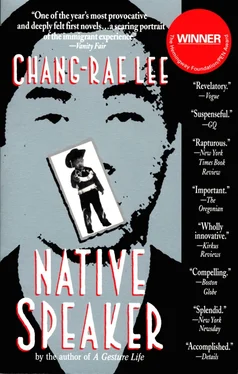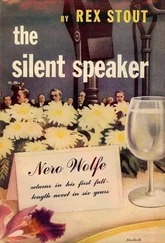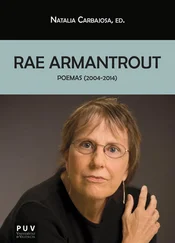The hostess appeared from the coatroom and greeted us with bows. She took our coats. John Kwang walked a few steps with her and said something I couldn’t hear, but she nodded and then led us to an upstairs room.
She was very lovely. Beautifully colored, if this can be said, the blackness of her hair, the faint blush of her cheek, her lips. And there was a serenity to her expression which I could not decide on, whether it was the face of someone simply a little tired or quelling a sadness. It must be the obvious keeping of secrets that I find so attractive. I watched her as she ascended. Her hair was pulled back and held in a tight bun. She wore a traditional Korean costume, the shortened brocade vest and billowing long skirt in bright yellow and red silk and rainbow bands around the oversized sleeves. It wasn’t an outfit for working, by any means, though the woman moved easily in it.
The hostess pushed open a wood-and-paper sliding screen to the private room, and inside there was a low Korean-style table and sitting mats and a central ceiling vent for the grill smoke. She bowed again and took away our shoes. I realized she had not spoken a word to us.
Soon afterward a man wearing a suit came in, speaking effusively in Korean. He carried a tray of porcelain shot glasses and a small bottle of soju , clear liquor made from potatoes. The man, who I realized was the manager and owner, was saying how honored he was for Master Kwang to have come in to his fledgling establishment. He wanted the Master and his protégé to be special guests of his tonight, and hoped the house cuisine would be to our taste.
Kwang tried to protest but the manager insisted by pouring out two glasses of soju for us. Kwang then leaned forward to offer one to him, but I interceded and poured a third shot from the bottle. We toasted each other and drank. We made several more toasts and it wasn’t until the arrival of the first course of gochoo pajun (hot pepper and scallion fritters) that the manager rose to leave.
Master Kwang , he said before sliding shut the screen, may your presence here be a blessing to this house as you have been a blessing to our brethren in New York . He bowed several times and backed out and shut the screen.
Kwang seemed relieved to have him go. He must have had two dozen conversations a day like this. He loosened his tie and rolled up his sleeves to eat.
“You have a family, yes?” Kwang asked, placing a strip of pajun on my dish with his chopsticks.
“I have a wife.”
“Is she Korean?”
“No,” I said.
“Ah, any children?” he asked, sounding hopeful, like my father once had.
I shook my head. Then I said, “Once.”
He looked at me gravely. “I’m sorry, Henry. I don’t mean to pry. You ought to tell me if I am.”
“You’re not,” I said.
“Well, I won’t ruin your meal. I didn’t invite you for that.” He poured me more soju . “I just wanted to meet you. Janice gave me a copy of your résumé. You must be smart to have gone to such a good school. I hope the same for my sons. You were born where?”
“Here.”
“Yes. As you’ve seen, there aren’t many Koreans working for me aside from the students from CUNY. No adults , as it were, except for you.”
“I guess I should be an investment banker or lawyer.”
Kwang laughed. “I’m happy you’re not! Ah, I know that is what all the young Korean Americans are doing. Some in medicine, engineering. Good for them. We need them all to succeed. My wife’s niece, Sara, is already a vice president in mergers and acquistions. She’s only twenty-eight. Whenever I see her she asks if I’m thinking of selling my business. ‘Is there a buyer?’ I asked her last time. ‘Give me eighteen hours,’ she said so seriously. I had to tear away her cellular phone. All she’d have to do is talk half a minute with my accountant to know there’s nothing to interest her. She thinks I’m much bigger than I am. Much bigger. She says if I run for mayor she wants to be comptroller, of all things.”
“Is she electable?”
“Eminently,” he answered, smiling. “She’s dynamite.”
I took the obvious opening. “The real question,” I said to him, “is whether you’re going to run.”
He replied without looking up from his dish. “The papers seem to think so.”
This was true. I had read numerous editorials in the last few months that had questioned De Roos’ interest in genuinely improving the city, suggesting that he had grown comfortable and cynical and out of touch with his job, being now in his second term. Assuming a third. But the feeling was that the city was beginning to buckle under its burdens. Businesses were relocating to New Jersey because of high taxes and crime. There was a string of deadly subway accidents. Some schools were spending more on metal detectors than on lab equipment. There were no neighborhoods — even on the Upper East and West sides of Manhattan — that were safe. De Roos, suddenly, was looking as if he had been asleep at the wheel. The editorialists suggested John Kwang, among others, as someone who could bring a fresh face to confront the city’s ills, a politician who could better understand the needs of the rapidly changing populace.
Mostly, it was the season’s language. Kwang, it was easy to see, was already running into his first real troubles. The press was having a field day. They had multiple boycotts to cover. Vandalism. Street-filling crowds of chanting blacks. Heavily armed Koreans. Fires in the night. The pictures were the easiest 11 P.M. drama. Nothing John Kwang could say or do would win him praise. His sympathy for either side was a bias for one. He couldn’t even speak out against the obvious violence and destruction, after black groups had insisted they were “demonstrations” against the callousness of Korean merchants and the unjust acquittal of the Korean storeowner who’d shot and killed Saranda Harlans. The papers and television stations were starting to go back and forth with “information” and “statements.” Reporters talked to anyone on the street. What I was noticing most was the liberty they took with the Koreans. A reporter cornered some grocer in an apron, or a woman in the door of her shop, both of them looking drawn and weary. The lighting was too harsh. The Koreans stood there, uneasy, trying to explain difficult notions in a broken English. Spliced into the news stories, sound-bited, they always came off as brutal, heartless. Like human walls.
“Sometimes I have serious thoughts about running,” he said, pausing now from the eating. He leaned forward on the table with his forearms. “But I’m suspicious. It’s usually after some round of clamor. That’s not a good sign, obviously. I find myself getting caught up. When others construct and model you favorably, it’s easy to let them keep at it, even if they start going off in ways that aren’t immediately comfortable or right. This is the challenge for us Asians in America. How do you say no to what seems like a compliment? From the very start we don’t wish to be rude or inconsiderate. So we stay silent in our guises. We misapply what our parents taught us. I’m as guilty as anyone. For instance, this talk that I’m the one to revitalize the Democratic party in New York.”
“That’s the mayor’s secret mission,” I replied. De Roos had been pushing this angle since the last campaign. He had an idea to remake the image of the local party machinery. He himself had mentioned John Kwang as a part of that vanguard, though his implication was then cast only in terms of succession . “But people think that the shoe fits better on you.”
“In theory,” John said, “all in theory.” By the tone of his voice I thought he was going to drop the subject, but he downed his soju and filled both our cups again. His voice cracked with the fume of the liquor. “But the fact is, Henry, that it’s a one-party system. We only need one party.”
Читать дальше












